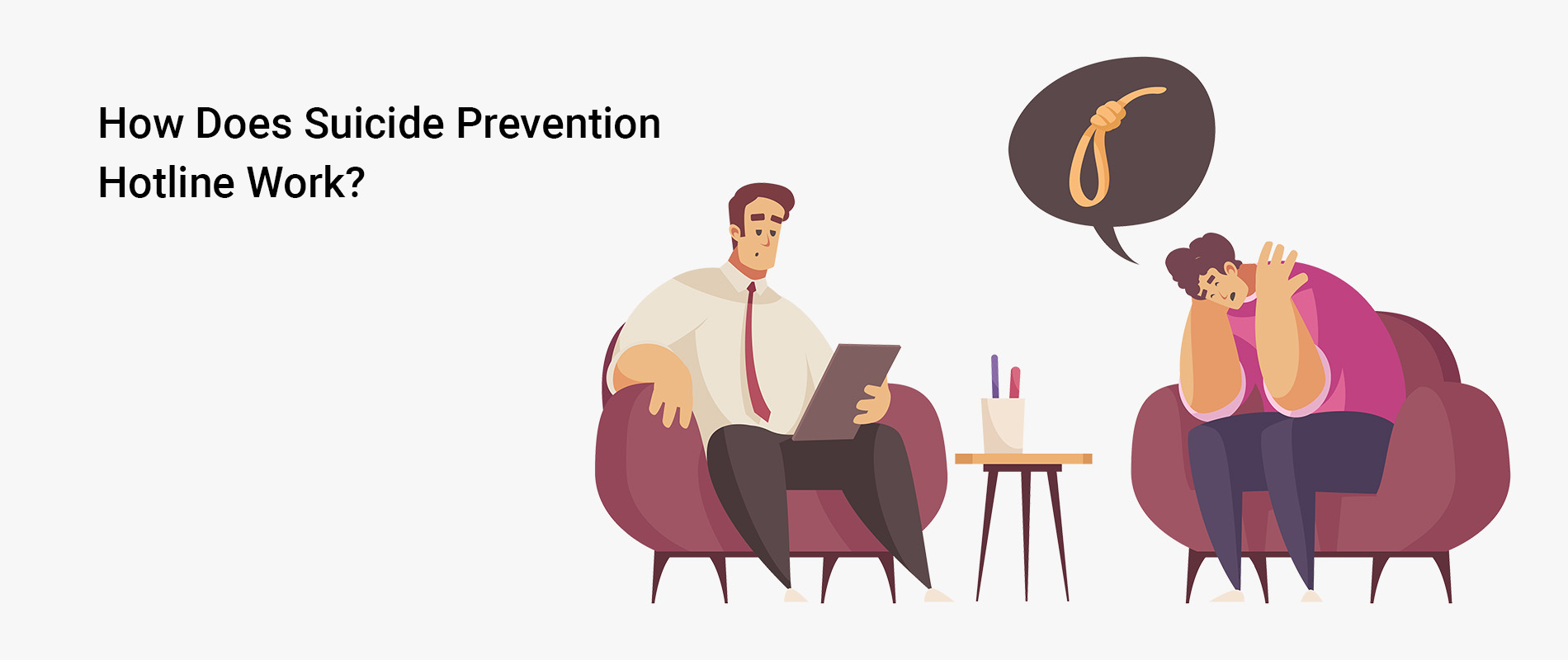Table of Contents
Recently, on the 10th September, we all observed World Suicide Prevention Day. I am sure, a lot of us must have come across plenty of posts on social media, pertaining to the importance of how to prevent suicide and awareness about the topic. From busting myths about suicide to giving emotional support to the suicide survivors, we must commend the amount of empathy and genuine awareness that is spread about the entire suicide topic in the recent years. Sure, there is still some stigma and reluctance to get help but why does that happen? Let’s dig in a little deeper to understand.
The thoughts for suicide could exist because the person is overburdened with emotional pain (along with other factors). A person might not be able to find any rescue from a situation which may cause intense emotional distress and that distress, that pain persists. Now this unbearable situation or situations may come up due to various reasons- it could be something going on in the personal life of the individual, in the professional area, relationship area, financial areas and so on. Now the core two reasons due to which a person may not openly talk about their suicide ideation could be because they feel that they cannot talk about the issue (it could be embarrassment, guilt, something which may cause harm to other people’s life etc) and second could be that they may feel that they will not be understood by others.
Suicide can be passive- where there are just thoughts regarding self-harm or ending one’s life, and active- where the person has decided on take action on their thoughts. Suicide is never the primary thought. Many situations or actions lead to this thought. In such situation, if we tell a person not to think of taking their life because world is such a beautiful place to live in, then that person may just completely shut off and refuse talking about their thoughts. Hence, understanding how important it is that a person with suicidal thoughts needs to open up and get guidance, we at We Are In This Together (WAITT) have opened a hotline which works on 2 principles- giving the people a safe space to talk about anything and everything without feeling embarrassed and to provide empathetic listening.
What Are Suicide Prevention Hotlines?
We know and truly understand that suicide can be a difficult topic to talk about. One may not understand whom to talk to about all this. Most of times, when someone with suicide ideation reaches out to the friends or other members of their family or social circle, they might hear things like “Life is so beautiful and you want to end it?”, “Stop looking at the negatives and look at the positives.”, “People who commit suicide are so selfish because they do not even think about their family.” And so on. By saying all this, others might put a spotlight on surrounding things or the things which that person might not have control on. Why is the spotlight not on how much pain that person is going through and how is he/she dealing with it? Usually, when a person with suicide ideation talks to a confidante, they may feel more suicidal because of the wrong questions asked by the listener. And of course, it isn’t entirely the listener’s fault because they haven’t been trained to handle such crisis situation, to ask the right questions. Hence, talking to absolutely anyone would not work. What to do then?
Another issue could be the person’s identity. A person may not take a step towards counselling probably because they do not want to reveal their identity, which could be their face, name, contact information etc. Again, how to get help then?
The answer is Suicide prevention Helpline/Hotline. These helplines work via telephonic methods. Anybody who feels like they need to talk to a professional for their distress or suicide thoughts without revealing identity or without being judged can call on the helpine and talk their heart out.
Understanding how essential a helpline could be to cater to people’s mental health, we have Sakal Sobat Boluya- is a mental health helpline which works 24 hours for all the 7 days in a week. It was started with a goal of helping people reach out to get help or guidance for any emotional distress that they are going through. Suicide is one of the major areas for which the helpline works. It is a free helpline, on which you can reach at any time of the day and the counselor will guide you for your crisis situation.
The hotline number is: 020 71171669
How Does The Helpline Work?
Once you call on the helpline number, you will be asked about what kind of guidance are you seeking for. Currently there are 10 counsellors at WAITT who are providing crisis counselling in Hindi, English and Marathi languages. After knowing your language preference, you would be redirected, on call, to the crisis counsellor.
There are no criteria listed when it comes to calling the helpline. You can be of any age, gender, sexuality and can contact the counsellors on the helpline for suicide or other emotional/psychological distress.
Remember, the helpline is for you! You can talk whatever you want to talk about and be assured that you are being listened with full attention. You can utilize this helpline by talking your heart out or by connecting with a counsellor in silence. Once you connect on the helpline, it is your time to share whatever you feel like in a safe space and express any emotions you feel like without feeling awkward about it.
Counselors Associated With The Helpline:
There are 10 counselors associated with Sakal Sobat boluya. They all are trained psychologists who have been given a special training for suicide prevention counselling for this project. The psychologists work in a 4-hour shift so that the helpline can be kept operational for 24 hours. There is no time limit for the call. You can talk or be on the helpline for as long as you would like to.
Counselor Shilpa Tambe and Dr. Viren Rajput are the expert professionals on our team for suicide prevention. Shilpa Tambe is associated with the Helpline and Dr. Rajput caters to one-on-one counselling sessions for suicide prevention. To know more about the sessions or about the counsellor, you can visit here- https://www.waitt.in/counselor/viren-rajput/
How Can The Helpline Help Me?
How many times have we felt the need to have someone who would just listen to us? No suggestions, no interruptions. Just open ears, full attention and an open mind! When it comes to suicidal thoughts or suicide ideation, the person with these thoughts might be seeking some emotional release and listening actively, without being judgmental, can help in achieving 50% of the emotional release. Active listening can make one feel understood and feel validated which enhances the healing. Our counsellors make sure that you are heard and they also have the appropriate skills for it!
Along with sharing, you will also get guidance on coping skills, and will be shared with useful resources which you may explore to get further guidance for the issues that you are facing. The end goal to help anyone with suicide thoughts is to guide them by making action plan to reduce the intensity and frequency of these thoughts and work on them rationally.
When Should I Consider Other Treatment Options?
One can decide on taking counselling session at absolutely any stage when it comes to suicide or other emotional and psychological problems. If you are open to opt for one-on-one counselling but are confused whether to go for it or stick to the helpline then following points will help you in understanding when to choose one-on-one counselling:
- Thoughts shifted from passive to active- When you feel like the thoughts regarding self-harm are not just thoughts anymore but are forcing you to take action on it.
- A plan- When you have an elaborate plan on how you would end your life.
- A timeline- When you have chalked out an outline to carry out the plan.
- No emotional release- When you feel that helpline isn’t working on getting that emotional release or isn’t helping in controlling the thoughts regarding suicide.
Other treatment options can also be-
- Psychiatric intervention.
- Visit to the nearest Emergency and Trauma Room.
- Treatment at Suicide Prevention Rehabilitation Centre.
Other Suicide Prevention Helplines:
Apart from WAITT, there are various organizations who are working diligently to prevent suicide and help clients with suicide ideations to come out of it. Here’s a list of such organizations that you can reach out to:
- Tata Institute of Social Sciences (TISS) icall: 022-25521111 (Operating-Monday to Saturday, 8 AM to 10 PM)
- Connecting NGO: 9922004305 or 9922001122 (Operating every day from 12pm to 8pm)
- Vandrevala Foundation: 022-25706000 (Operating 24 hours, all days)
- Sangath: 011-41198666 (Operating every day from 10 am to 6pm)
Takeaway
Talking about the dark thoughts leading to self- harm or suicide can feel overwhelming and disturbing. The nervousness of just thinking of unloading your thoughts onto someone is understood. But it is a request to let us in on this dark patch, and let us be with you on this journey, because remember, we are in this together!









